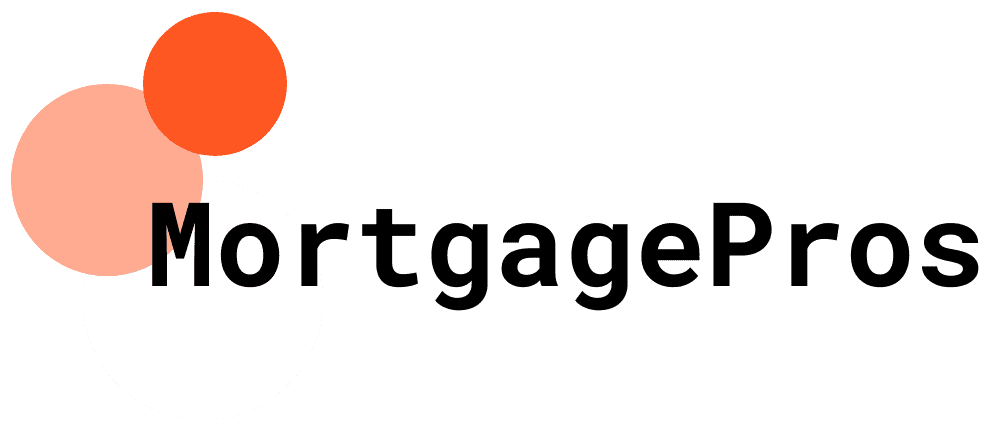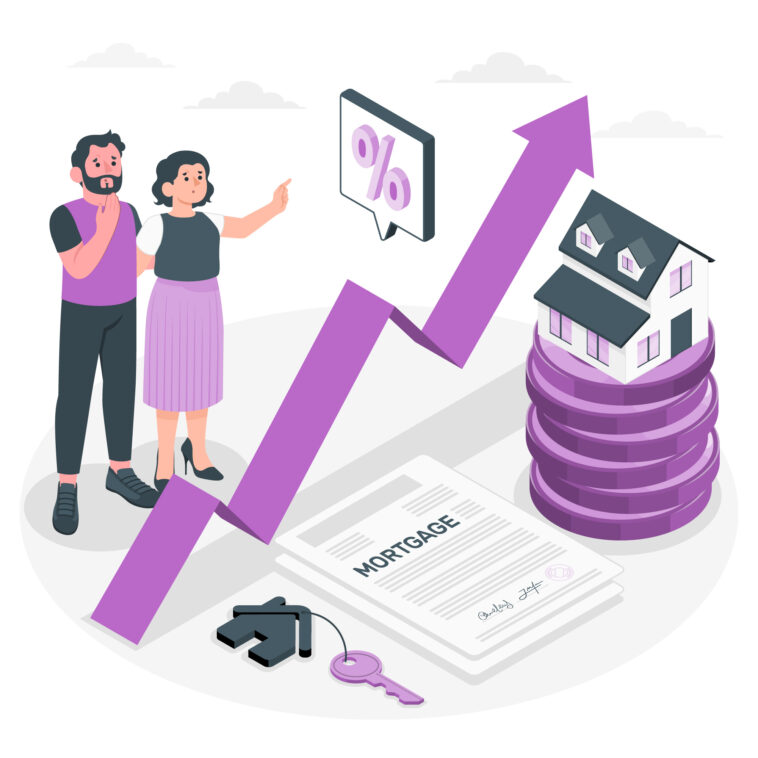Mortgage rates play a crucial role in determining the cost of a home loan, and even a slight difference in rates can significantly impact your monthly payments and total loan cost. Whether you’re a first-time homebuyer or looking to refinance, understanding how mortgage rates work and how to secure the best rate is essential. In this guide, we’ll cover everything from the factors that influence mortgage rates to tips on finding competitive rates.
What Are Mortgage Rates and Why Do They Matter?
A mortgage rate is the interest rate charged by a lender on a home loan. This rate is essentially the cost of borrowing money to purchase a home, and it directly affects your monthly payments and overall loan expense. Lower mortgage rates reduce the amount of interest paid over the life of the loan, making your home more affordable in the long run.
Since mortgage loans are usually repaid over 15-30 years, locking in a lower rate can mean substantial savings. This is why it’s essential to pay attention to mortgage rates and understand how they’re determined before committing to a loan.
Types of Mortgage Rates
There are two main types of mortgage rates to consider when choosing a home loan: fixed-rate and adjustable-rate mortgages (ARMs). Each has unique advantages and disadvantages, and choosing the right one depends on your financial situation and goals.
1. Fixed-Rate Mortgages
With a fixed-rate mortgage, the interest rate remains the same for the entire loan term, providing predictability and stable monthly payments. Fixed-rate mortgages are commonly offered with terms of 15, 20, or 30 years.
- Pros: Consistent monthly payments, easier budgeting, protection against rising interest rates.
- Cons: Fixed rates are usually higher than initial ARM rates, potentially costing more if you only plan to stay in the home short-term.
2. Adjustable-Rate Mortgages (ARMs)
ARMs offer an initial fixed-rate period (often 5, 7, or 10 years) after which the rate adjusts periodically based on market conditions. For example, a 5/1 ARM has a fixed rate for five years, followed by annual adjustments.
- Pros: Lower initial interest rate, potentially lower payments during the initial fixed-rate period.
- Cons: Rates can increase significantly after the fixed-rate period, leading to higher payments.
ARMs are often beneficial if you plan to sell the home or refinance before the adjustable period begins. However, if you intend to stay in the home long-term, a fixed-rate mortgage may offer better security.
Factors That Influence Mortgage Rates
Mortgage rates are influenced by a combination of personal factors and broader economic conditions. Here are the primary factors that determine the rate you’ll qualify for:
1. Credit Score
Your credit score is one of the most significant factors lenders consider when setting your mortgage rate. Higher credit scores indicate a lower risk to lenders and often qualify for lower interest rates, while lower scores may result in higher rates or limited loan options.
- Tip: Aim to improve your credit score before applying for a mortgage by paying down debt, making timely payments, and keeping credit card balances low.
2. Loan Type and Term
The type of mortgage you choose and the length of your loan term also affect the interest rate. Generally, shorter loan terms, like 15-year mortgages, have lower rates than 30-year mortgages. Likewise, government-backed loans (such as FHA, VA, and USDA loans) may offer lower rates compared to conventional loans.
3. Down Payment Amount
A larger down payment often qualifies you for a lower interest rate since it reduces the lender’s risk. A down payment of 20% or more typically yields better rates, while smaller down payments may require private mortgage insurance (PMI), which increases your monthly payment.
4. Economic Factors
Mortgage rates are also influenced by economic conditions, including inflation, the Federal Reserve’s interest rate policies, and the overall state of the economy. During periods of economic growth, rates tend to rise, while during economic downturns, they often decrease.
5. Location and Loan Amount
Mortgage rates can vary based on the location of the property and the loan amount. Certain areas may have higher average rates, and loans that exceed conventional limits (known as jumbo loans) may come with higher rates due to increased risk.
By understanding these factors, you can take steps to position yourself for the best possible mortgage rate.
How to Find the Best Mortgage Rates
Finding a competitive mortgage rate requires research, comparison, and preparation. Here’s how to increase your chances of securing the best rate:
- Improve Your Credit Score: Check your credit report for errors and work on paying down debt to boost your score. The higher your score, the better the rate you’ll likely qualify for.
- Save for a Larger Down Payment: A higher down payment can help you secure a lower rate. Aim for at least 20% if possible to avoid PMI and reduce the overall loan amount.
- Compare Multiple Lenders: Don’t settle for the first offer—get quotes from multiple lenders, including banks, credit unions, and online lenders. Comparing rates and terms can save you thousands over the life of the loan.
- Consider Mortgage Points: Mortgage points, or discount points, are upfront fees paid to reduce your interest rate. Paying points can be worth it if you plan to stay in the home long-term, as it lowers your monthly payment.
- Choose the Right Loan Type and Term: Select a mortgage type and term that aligns with your financial situation. A shorter loan term generally offers lower rates, while adjustable-rate mortgages can offer savings if you don’t plan to stay in the home long.
Taking these steps can help you secure a favorable rate and make your mortgage more affordable.
When to Lock In Your Mortgage Rate
A rate lock is an agreement between you and your lender to secure a specific interest rate for a set period, usually 30, 45, or 60 days. Locking in your rate protects you from rate increases while you finalize your home purchase. Here’s when to consider a rate lock:
- When Rates Are Low: If rates are low or expected to rise, locking in your rate early can save you money in the long run.
- During the Home Buying Process: Once you’ve found a home and are in the closing process, consider locking in the rate to avoid fluctuations.
- Choosing the Lock Period: The longer the lock period, the higher the fee. Choose a lock period that aligns with your anticipated closing date to avoid extra costs.
Be sure to ask your lender about their rate lock policies and any associated fees.
Top Mortgage Lenders to Consider
Several well-known mortgage lenders offer competitive rates and terms, each with its unique benefits. Here are some of the top lenders to consider for your mortgage needs:
- Quicken Loans: Known for their online platform and customer service, Quicken Loans offers competitive rates, quick pre-approval, and a variety of loan options.
- Wells Fargo: Offers a range of mortgage products and has physical branches for those who prefer in-person service.
- Chase: Provides a wide range of loan options and discounts for current banking customers.
- Bank of America: Offers low down payment options and special programs for first-time homebuyers.
- Better.com: An online lender with a streamlined, digital process, offering competitive rates with no origination fees.
Researching and comparing lenders can help you find a provider with favorable rates and a loan program that fits your needs.
Frequently Asked Questions About Mortgage Rates
- Q: What is the difference between APR and interest rate?
A: The interest rate is the cost of borrowing the principal loan amount, while the APR (Annual Percentage Rate) includes the interest rate plus additional fees, giving a more complete picture of the loan’s cost. - Q: How often do mortgage rates change?
A: Mortgage rates can fluctuate daily based on market conditions, economic factors, and lender policies. - Q: Can I negotiate my mortgage rate?
A: Yes, you can negotiate rates with lenders, especially if you have a strong credit score and solid financial profile. - Q: How do I know if it’s a good time to refinance my mortgage?
A: Consider refinancing when current rates are at least 0.5% lower than your existing rate, and ensure the savings justify any closing costs. - Q: Will paying extra on my mortgage reduce the overall interest paid?
A: Yes, paying extra on your mortgage can reduce the loan balance faster, lowering the total interest paid and potentially shortening the loan term.
By understanding mortgage rates, preparing ahead of time, and comparing lenders, you can secure the best possible rate for your mortgage. Happy house hunting and best of luck finding the perfect home and loan!

